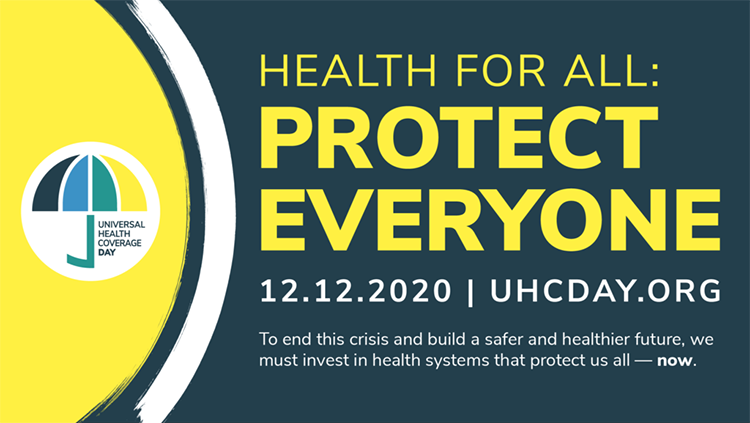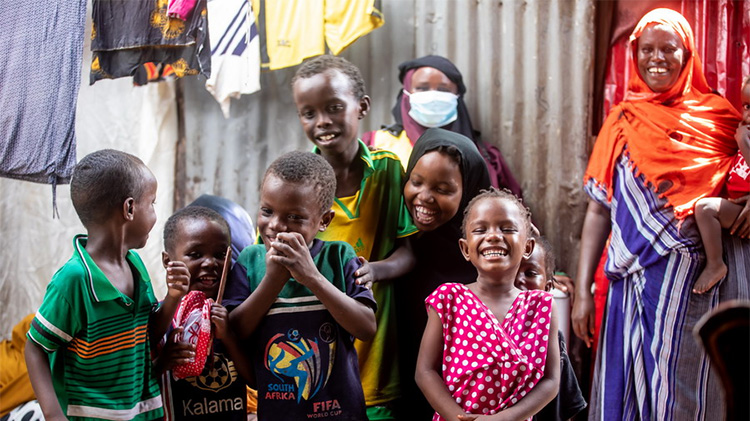
10 December 2020 - International Universal Health Coverage Day on 12 December is the annual rallying point for Health for All by All. It marks the anniversary of the United Nations’ historic and unanimous resolution for universal health coverage in 2012.
All people have a right to quality health care without fear of financial hardship or discrimination. Leaders can and must ensure that quality health services reach everyone based on need, not their ability to pay.
Ministers of Health and heads of delegations from the countries of the Eastern Mediterranean Region have collectively signed the UHC2030 Global Compact, making the Region the first among WHO’s six regions to do so. By signing the Compact, the Regions leaders demonstrated their commitment to take action and make progress towards UHC.
That commitment has also been demonstrated by WHO’s main regional governing body, the Regional Committee for the Eastern Mediterranean, which endorsed a resolution in 2018 urging Member States to develop national visions and roadmaps to progress towards UHC. Universal health coverage is at the core of WHO’s vision for the Region, Vision 2023, with its call for Health for All by All.
According to the Universal Health Coverage Service Coverage Index (SCI), essential health services are less accessible in the Eastern Mediterranean Region than in many other parts of the world. Between 2000 and 2017, the SCI increased globally from 45 to 66 out of 100, but in the Eastern Mediterranean Region it remained at less than 60. Low public investment in health means that individuals and families often have to pay for health care out of their own pockets; out-of-pocket spending accounted for around 40% of all current health expenditure in the Region between 2000 and 2015. Financial hardship due to direct health spending rose higher in the Eastern Mediterranean than in any other WHO Region during this period. In the year 2000, 8% of the population faced catastrophic health expenditure in the Region; by 2015 the proportion had risen to 11.7%.
As in the rest of the world, the COVID-19 pandemic has severely affected lives and livelihoods in the Eastern Mediterranean Region. It has interrupted essential services for immunization, infectious and chronic diseases, maternal health and more, putting millions at risk.
An emergency is not the time to stall investment in public health. On the contrary, as part of the response to COVID-19, countries must invest more and invest better in strong health systems to ‘Protect Everyone’ – during and after the pandemic. Strong primary health care can provide people with the quality care they need, right in their communities.
The COVID-19 crisis has magnified what’s at stake when people lose trust in their leaders and public systems. Governments must be accountable to their people and take responsibility for building health and social systems that protect everyone.
To achieve Health for All by All, it is critical that no one is left behind. Leaders must engage meaningfully with all communities and civil society to ensure wide representation in decision-making so that health systems reach everyone.
Next year will be the International Year of Health and Care Workers. These frontline caregivers have been leading the charge for Health for All by All since long before the current pandemic. Making sure they have the education, training, resources and support they need is the best thank you the world can offer.
Health for All by All is everyone’s business. Civil society, governments, the private sector, academia, local communities and health practitioners. They must work hand in hand. Strong health systems protect everyone.
Message of Dr Ahmed Al-Mandhari on the occasion of UHC Day 2020
Related link



